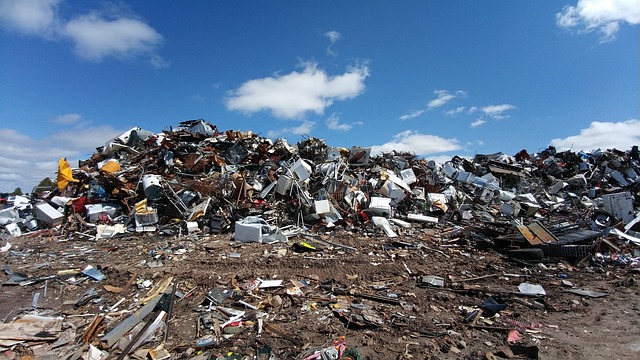ASTM D6238 Volatile Organic Compounds in Industrial Waste
The ASTM D6238 standard provides a standardized method for determining volatile organic compounds (VOCs) in industrial waste. This is critical for ensuring that hazardous and non-hazardous wastes are managed safely and responsibly, thereby protecting human health and the environment.
Industrial waste can contain a wide range of VOCs, which are typically flammable liquids and gases with low boiling points. These compounds pose significant risks if not properly controlled during collection, transportation, treatment, and disposal processes. ASTM D6238 helps to identify these compounds by establishing precise measurement techniques that ensure accurate results.
The standard outlines the procedures for sample preparation, extraction, and analysis using gas chromatography (GC). It specifies the use of certified reference materials (CRMs) and ensures that all laboratory personnel involved in testing are trained according to international standards. Compliance with ASTM D6238 is mandatory in many jurisdictions where strict regulations govern waste management practices.
By adhering to this method, laboratories can provide reliable data on VOC concentrations within industrial wastes, enabling stakeholders to make informed decisions regarding waste handling and disposal options. This information also supports regulatory compliance efforts by identifying potential risks associated with specific types of industrial waste streams.
The application of ASTM D6238 extends beyond mere quantification; it plays a crucial role in assessing the environmental impact of various industries contributing to solid and liquid wastes. For instance, manufacturing plants that generate significant amounts of effluent or sludge must regularly test their outputs for hazardous constituents as per regulatory requirements.
Furthermore, this standard facilitates the development of safer waste treatment technologies by allowing researchers to study how different chemicals behave under varying conditions during decomposition processes. Understanding these interactions can lead to more effective remediation strategies aimed at reducing overall pollutant levels in landfills and aquatic ecosystems.
In summary, ASTM D6238 serves as a vital tool for ensuring accurate detection of volatile organic compounds present in industrial waste materials, promoting best practices across the entire supply chain from production floors to final disposal sites. Its rigorous methodology ensures consistent results regardless of location or laboratory personnel performing the tests.
Quality and Reliability Assurance
The quality and reliability of ASTM D6238 testing are paramount in maintaining public safety standards across diverse industries dealing with hazardous materials. Our team employs advanced analytical techniques such as gas chromatography-mass spectrometry (GC-MS) to achieve precise measurements.
- Strict adherence to ISO 17025 accreditation ensures our laboratory meets the highest industry expectations for accuracy and precision.
- We utilize state-of-the-art equipment calibrated regularly against national standards to guarantee consistent performance.
- A robust quality control program involving internal audits, proficiency testing programs, and continuous staff training reinforces our commitment to excellence.
Our experienced scientists possess extensive knowledge of both the theoretical underpinnings and practical applications of VOC analysis as per ASTM D6238. This expertise enables us to deliver accurate reports that meet or exceed regulatory requirements while providing valuable insights into waste composition trends over time.
| Parameter | Description |
|---|---|
| Methodology | Involves sample preparation, extraction using solvent techniques, followed by analysis via gas chromatography-mass spectrometry (GC-MS). |
| Reference Materials | Certified reference materials (CRMs) are used to ensure consistent results across multiple tests. |
| Data Interpretation | Our experts interpret raw data into actionable insights, helping clients understand the implications of their waste composition. |
This comprehensive approach guarantees that every aspect of our testing process contributes to accurate and reliable results. By leveraging cutting-edge technology combined with meticulous attention to detail, we ensure compliance with all relevant regulations while delivering meaningful information about your industrial waste streams.
Customer Impact and Satisfaction
- Enhanced Compliance: Ensuring strict adherence to regulatory guidelines helps businesses avoid costly fines and legal issues related to non-compliance.
- Improved Safety Measures: Accurate VOC detection allows for better management practices that minimize risks associated with hazardous waste handling.
- Enhanced Reputation: Demonstrating commitment to sustainable practices through reliable testing enhances your company’s reputation among stakeholders.
- Cost Efficiency: Early identification of problematic compounds enables proactive measures, reducing potential downtime or remediation costs later on.
We pride ourselves on delivering exceptional service tailored specifically to meet the unique needs of our clients. Our team works closely with you throughout each project phase—from initial consultation through final report delivery—ensuring seamless integration into existing workflows.
Your satisfaction is at the heart of everything we do, which is why we go above and beyond expectations by providing comprehensive support services designed to exceed your requirements. Whether it’s technical advice or detailed reports, our goal is always to help you achieve optimal outcomes while maintaining the highest standards in environmental stewardship.





